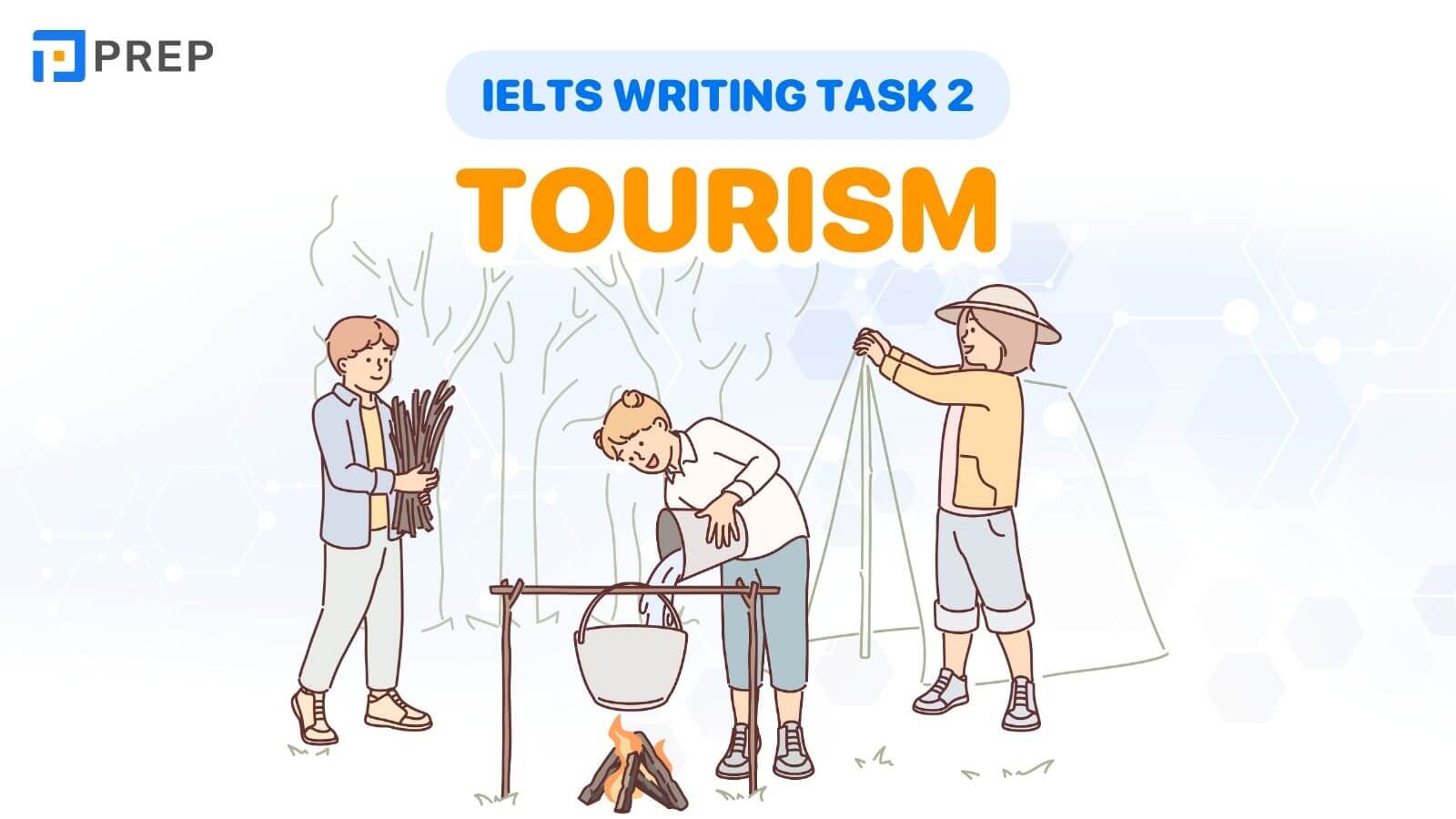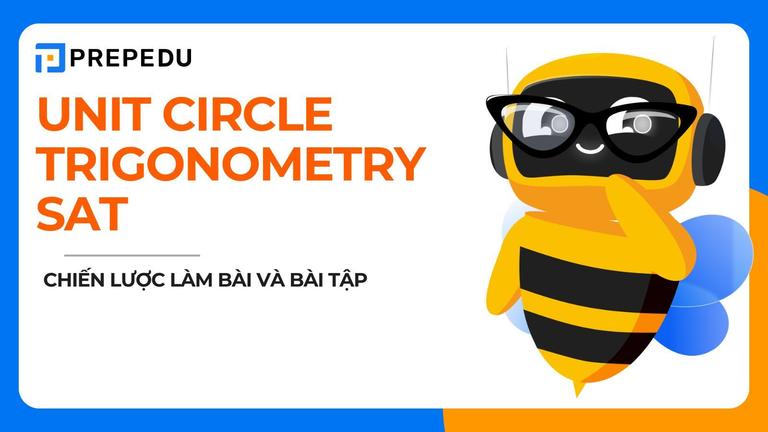Đề bài, bài mẫu IELTS Writing Task 2 chủ đề: Tourism
Ý kiến của bạn về vấn đề trong đề thi IELTS Writing Task 2 Tourism: “Các tour du lịch được tổ chức đến nhiều vùng sâu vùng xa và cộng đồng ngày càng phổ biến. Đó là sự phát triển tích cực hay tiêu cực cho người dân địa phương và môi trường?” ra sao? Hãy giải thích và tham khảo ngay bài mẫu IELTS Writing Task 2 Tourism được biên soạn bởi giáo viên hạng A của PREP dưới đây nhé!
[caption id="attachment_57238" align="aligncenter" width="500"] Đề bài, bài mẫu IELTS Writing Task 2 Tourism band 8.0+[/caption]
Đề bài, bài mẫu IELTS Writing Task 2 Tourism band 8.0+[/caption]
I. Đề bài IELTS Writing Task 2 Tourism
Đề bài IELTS Writing Task 2 Tourism: Organized tours to remote areas and communities are increasingly popular. Is it a positive or negative development for the local people and the environment?
[caption id="attachment_57282" align="aligncenter" width="1640"] Đề bài IELTS Writing Task 2 Tourism[/caption]
Đề bài IELTS Writing Task 2 Tourism[/caption]
II. Gợi ý giải đề & dàn bài IELTS Writing Task 2 Tourism
Trước khi tham khảo bài mẫu IELTS Writing Task 2 Tourism, hãy cùng PREP điểm qua một số phân tích đề thi cũng như outline chi tiết được biên soạn bởi giáo viên hạng A nhé!
1. Phân tích đề thi
IELTS Writing Task 2 Tourism là đề thi có độ khó ở mức trung bình. Mặc dù thí sinh có thể không gặp nhiều khó khăn khi tìm ý tưởng, nhưng vẫn cần để ý đến cạm bẫy cần tránh để đạt điểm cao, như:
- Khi trình bày các advantages & disadvantages, cần phân tích cho cả hai đối tượng là local people và environment. Khi thí sinh chỉ tập trung vào một đối tượng và bỏ quên đối tượng kia sẽ gây mất điểm.
- Sau khi so sánh được advantages & disadvantages của việc tổ chức các chuyến du lịch đến các vùng hẻo lánh, thì cần rút ra được cuối cùng đây là hiện tượng tích cực hay tiêu cực. Nếu chỉ đơn thuần nêu advantages & disadvantages thì sẽ gây lạc đề và mất điểm trong đề này.
2. Dàn bài chi tiết
Dàn bài IELTS Writing Task 2 Tourism bao gồm 4 phần, cụ thể nội dung chính được trình bày như trong bảng dưới đây:
| Introduction |
|
| Negatives of organized tours to remote areas and communities |
|
| Positives of organized tours to remote areas and communities |
|
| Conclusion & Opinion |
|
III. Bài mẫu IELTS Writing Task 2 Tourism
Bài mẫu IELTS Writing Task 2 Tourism band 8.0+ được biên soạn chi tiết bởi giáo viên hạng A tại PREP. Bạn hãy tham khảo ý tưởng cũng như những từ vựng ăn điểm được sử dụng trong sample này nhé!
Organized tours to distant locations and communities have become popular in recent years. In the debate about the impacts of such tours on the local people and the environment, I believe that this development is largely beneficial.
On the one hand, there are some disadvantages produced by this kind of traveling. Firstly, the influx of tourists, especially those who lack environmental awareness, may harm the environment. These heedless visitors may litter indiscriminately because of the lack of waste disposal facilities. The waste would cause pollution, especially if dumped in water sources, and damage the natural beauty as well. The presence of tourists, in addition, can lead to local people being exploited. Tour operators who are looking to make a profit may take advantage of indigenous communities and market them as attractions to travelers. In some cases, the natives receive little to no compensation for their trouble. It is hence understandable that some would express reservations toward the idea of touring to remote areas and communities.
However, significant benefits to the local people and the environment do exist. Organized tours can raise awareness of environmental protection in visitors. The fascination with the exotic or breathtaking scenery at the destination might spur people to preserve nature. Consequently, there would be an increase in protection and conservation efforts for the area. Being visited by tourists, meanwhile, may help the natives catch up in terms of human development. As these indigenous communities are far away from civilization, contact with organized tours offers them an interesting cultural exchange and economic opportunities. Specifically, they can offer services, such as accommodation, food, and transport, to the tourists for income in return. At the same time, this experience lets them learn about the world through visitors, helping to broaden their horizons and perspective so that they could improve their communities later on.
Given these points, I believe that organized tours to remote locations represent a positive development, despite some misgivings. It is therefore crucial that tour agencies operate ethically to protect both the natives and the environment from exploitation. By doing so, the benefits of organized tours can be maximized, while minimizing the detrimental impacts.
Từ vựng sử dụng trong bài IELTS Writing Task 2 Tourism:
- Influx (n.): đám đông
- Heedless (adj.): cẩu thả
- Indiscriminately (adv.): bừa bãi
- Waste disposal (n.): xử lý rác thải
- Indigenous (adj.): bản địa
- Implication (n.): hệ quả
- Compensation (n.): thù lao
- Reservation (n.): sự dè dặt
- Exotic (adj.): kỳ thú
- Breathtaking (adj.): hùng vĩ
- Spur (v.): thôi thúc
- Civilization (n.): nền văn minh
- Cultural exchange (n.): trao đổi văn hóa
- Misgiving (n.): sự hoài nghi
- Ethically (adv.): có đạo đức
Tham khảo thêm bài viết:
- Đề bài, bài mẫu IELTS Writing Task 2 chủ đề: News
- Đề bài, bài mẫu IELTS Writing Task 2 chủ đề: Animal protection
Trên đây là bài mẫu IELTS Writing Task 2 Tourism band 8.0+ chi tiết nhất. Ngoài sample này, luyện thêm nhiều đề thi IELTS Writing khác tại Không gian luyện đề ảo của PREP để nhanh chóng nâng cấp trình độ của bản thân bạn nhé!
Học IELTS trực tuyến tiện lợi cùng công nghệ Prep AI! Lộ trình học được cá nhân hóa, giúp bạn tự học hiệu quả ngay tại nhà. Tham gia khóa học IELTS chất lượng cao TẠI ĐÂY hoặc gọi HOTLINE 0931428899 để nhận ưu đãi đặc biệt hôm nay!
Tải app PREP và học IELTS tại nhà với chương trình luyện online chất lượng cao, cùng sự hỗ trợ 1-1 từ Teacher Bee AI, trợ lý ảo đồng hành cùng bạn trong suốt quá trình học.

Chào bạn! Mình là Hiền Hoàng, hiện đang đảm nhận vai trò quản trị nội dung sản phẩm tại Blog của website prepedu.com.
Với hơn 5 năm tự học các ngoại ngữ như tiếng Anh, tiếng Trung và ôn luyện một số kỳ thi IELTS, TOEIC, HSK, mình đã tự đúc rút được nhiều kinh nghiệm để hỗ trợ hàng nghìn người đang gặp khó khăn trong việc học ngoại ngữ. Hy vọng rằng những chia sẻ phía trên sẽ giúp ích cho bạn trong quá trình tự ôn luyện thi hiệu quả tại nhà!
Bình luận
Nội dung premium
Xem tất cảLộ trình cá nhân hoá
Có thể bạn quan tâm
Kết nối với Prep

MSDN: 0109817671.
Địa chỉ liên hệ: Tòa nhà Vinaconex, 34 Láng Hạ, phường Láng, TP Hà Nội.
Trung tâm CSKH tại HN: Lô 21 C2 Khu đô thị Nam Trung Yên, phường Yên Hòa, TP Hà Nội.
Trung tâm CSKH tại HCM: 288 Pasteur, Phường Xuân Hòa, TP Hồ Chí Minh
Trụ sở Công ty: Số nhà 20, ngách 234/35 đường Hoàng Quốc Việt, phường Nghĩa Đô, TP Hà Nội.
Phòng luyện ảo - Trải nghiệm thực tế - Công nghệ hàng đầu.
Hotline: 0931 42 8899.
Trụ sở Công ty: Số nhà 20, ngách 234/35 đường Hoàng Quốc Việt, phường Nghĩa Đô, TP Hà Nội.
Giấy chứng nhận hoạt động đào tạo, bồi dưỡng số 1309/QĐ-SGDĐT ngày 31 tháng 07 năm 2023 do Sở Giáo dục và Đào tạo Hà Nội cấp.

























